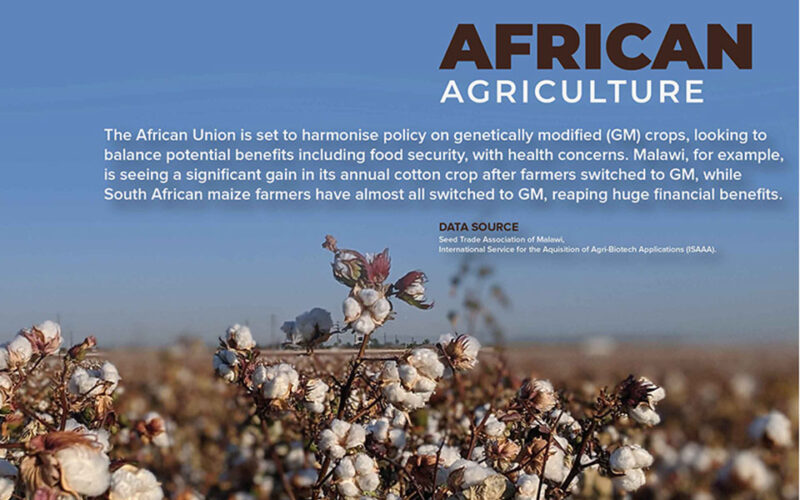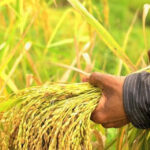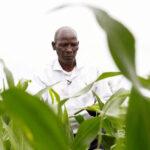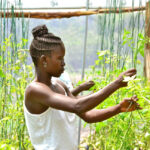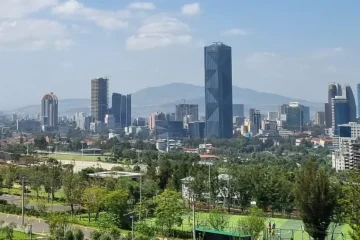SETH ONYANGO, BIRD
COTTON farmers in Malawi are reaping bountiful yields following the introduction of a genetically modified cotton variety, BollGard II in the 2019-2020 planting season.
This follows more than a decade of back and forth in the formulation of policy regulation on genetically modified (GM) crops in the south-eastern African state.
The African Union this week revealed that it was in the process of developing guidelines on the use of biotech crops across the continent, to ensure greater safety.
The AU faces tough choices as it attempts to balance a growing need for food security and also meets resistance from campaigners to policies that favour big business at the expense of concerns over public health and the environment.
Proponents argue that harmonising biotech policies in Africa will boost food production on the continent and curb the sale of GM seeds on the black market.
Opponents to GMO (genetically modified organism) crops point to the environmental consequences and potential health consequences of high levels of GM foods in diets. Europe has some of the strictest GM rules in the world, with stringent scientific testing on any GMO’s entering the zone.
Currently, South Africa, Sudan, eSwatini, Ethiopia, Malawi, Nigeria and Kenya have approved the commercial production of GM crops, including maize and insect-resistant cotton.
Influential East African market, Kenya, reversed its attitudes to GM over the last decade, with the country allowing imports and testing production of GM maize, after having resisted imports of South Africa GM maize in the past.
BollGard II is high-yield, drought, and pest-resistant cotton, with empirical studies in Burkina Faso indicating it boosts cotton yields by an average of 21.3 per cent and raised income by more than 106 US dollars per ha.
With its adoption in Malawi, the south-eastern African state has witnessed an increase in production after a dip in harvests and earnings between 2013 and 2019.
In the 2011/12 financial year, Malawi was able to produce a record of 100,000 metric tonnes, but thereafter the figure significantly dropped.
As of 2020, the Cotton Council of Malawi estimated that on average the country was producing about 15,000 MT per year. With the adoption of GM seed, the country is projected to harvest about 40,000 MT in the current season.
According to the Seed Trade Association of Malawi, 20,000 Malawian farmers planted the Bt cotton seed last season which just ended in June.
According to ISAAA, Africa has made significant milestones in biosafety policy and infrastructural development.
Niger passed a Biosafety Law in October 2019, providing safety measures in research and development concerning modern biotechnology and for transboundary movement of living modified organisms (LMOs) as well as products thereof.
Ghana’s government also considered new regulations that would facilitate the regulation of GM food in the country. The Biosafety Management of Biotechnology Regulations 2019, a legislative instrument, was passed by parliament.
The same year, Burkina Faso moved a major step forward in biosafety development following the inauguration of the National Biosafety Laboratory in September 2019 in Ouagadougou.
In South Africa, the estimated economic gains from biotech crops for the period 1998 to 2018 were approximately 2 billion US dollars, including 237 million US dollars for 2018 alone.
“South Africa was among the top ten biotech crops mega countries with 2.69 million hectares planted to biotech improved crops,” according to the International Service for the Acquisition of Agri-Biotech Applications (ISAAA).
“The country is nearing a plateau with average plant biotechnology adoption of 93 per cent of the three principal crops. This is a source of inspiration for other African countries and lessons learned continue to inform the growth of the sector,” the ISAAA said.
A total of 236,000 hectares of Bt cotton was planted in Africa, a slight drop of about 3 per cent from the 243,000 hectares planted in 2018.

